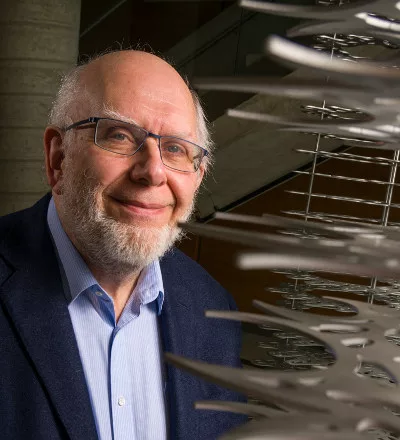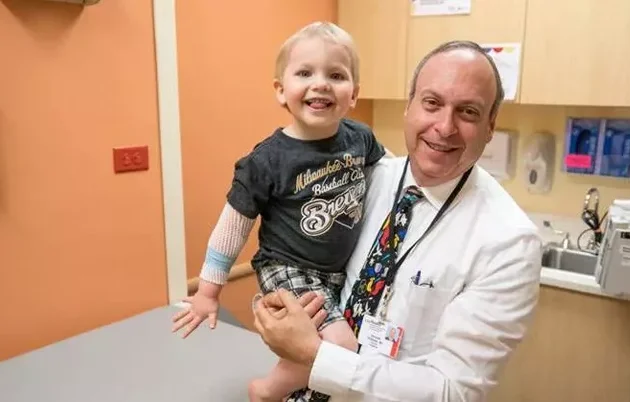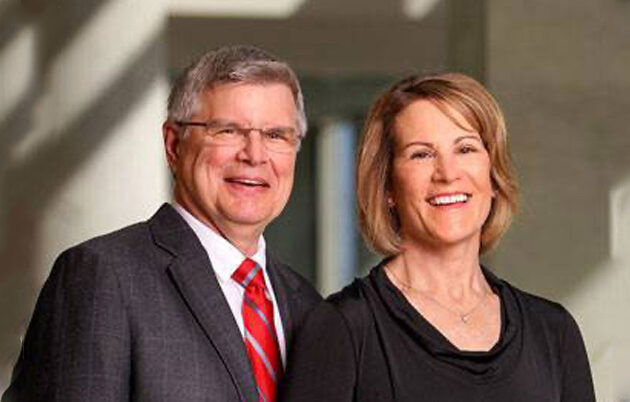Why did you want to be the one to start this initiative at the SMPH?
At this stage in my career, I want to leverage my ability, as a clinician-scientist, to span the clinical and basic science worlds and lead a major initiative to develop and implement precision genomic medicine. Because precision medicine is interdisciplinary by its very nature, the SMPH program was particularly attractive to me, as it is designed to reach across departmental and school boundaries.
What makes this school primed for this type of research?
The SMPH is part of a world-class research university that has deep expertise in the science and technology that form the foundation of human genomics. It also is one of the few medical schools that has made human genomics and precision medicine a major strategic priority. This unusual combination of ability and desire gives us the opportunity to play a leading role in the development and implementation of precision genomic medicine.
How would you explain precision medicine and human genomics in basic terms?
The word genome refers to the entirety of your genetic information, which includes more than 20,000 genes and consists of about 3 billion “letters” of DNA. Importantly, each of us has several million genomic variants — alternative spellings of the genome that are usually, but not always, harmless. Human genomics can be considered to be the study the human genome and its variants. Precision genomic medicine focuses on those few but important genomic variants that affect health. It involves using the informational content of your genome to diagnose and treat diseases you have, as well as predict which diseases you are at risk of developing in the future.
How does your research in Canada translate to working in the U.S.?
Much of what we have done in Toronto can be transplanted to Madison, but there are differences. The first two that come to mind are size and complexity. Because the United States has 10 times the population of Canada, we can work at a much larger scale here. At the same time, carrying out clinical research and implementing genomic medicine broadly and equitably is more challenging in the United States because of the health care system’s unique features.
How do you define the Center for Precision Medicine and Human Genomics’ mission?
I define the mission as threefold: to catalyze research, clinical and educational activities in human genomics and precision medicine; to grow and nurture the UW human genomics and precision medicine community; and to bring the benefits of precision medicine to all Wisconsinites.
Are there any common misperceptions in this field?
Yes. The most important misconception to dispel is the idea of genetic determinism — that your genomic variants predict everything that will happen in your life and that there is nothing you can do to change the future foretold in your genes. This fatalistic view simply is not true. We know that genomic variants are only a few of many factors that can affect your health. Once you know what your own genetic risks are, you often can take steps to minimize their impact on your health.
How will your research at the center translate to clinical care?
My research has the potential to directly impact clinical care, as it focuses on two of the major challenges in genomic medicine: finding new disease genes and improving our ability to rapidly and accurately identify genomic variants that cause disease.
What are you doing to get this center off the ground while the physical structure is being built?
While it will be great to have a physical home of one’s own, the heart of the UW Center for Human Genomics and Precision Medicine will be its people and their ideas. So, I’ve spent much of my first few months in Madison meeting with faculty throughout campus to learn about their interests and discuss how we can work together to develop collaborative clinical and basic science projects in genomics and precision medicine. At the same time, I’ve been working with several SMPH departments about recruiting new faculty for the center and planning for the center’s educational activities.
What is the long-term vision for the UW Center for Human Genomics and Precision Medicine?
We are still working on an official vision statement, but a good candidate might be, “Improving health by leading the integration of genomic knowledge into the practice of medicine.”
What are your first impressions of UW–Madison and the capital city?
Madison and the campus are bigger and hillier than I thought they would be. Also, people in Madison really are “Wisconsin Nice.”
I’m a bit of an architecture buff, so it was great to discover that one of Frank Lloyd Wright’s well-known buildings, the Unitarian Meeting House, is literally across the street from the health sciences campus.
Do you miss anything about Canada?
Three everyday things that I miss from Toronto are streetcars, the metric system and Gryfe’s bagels.




